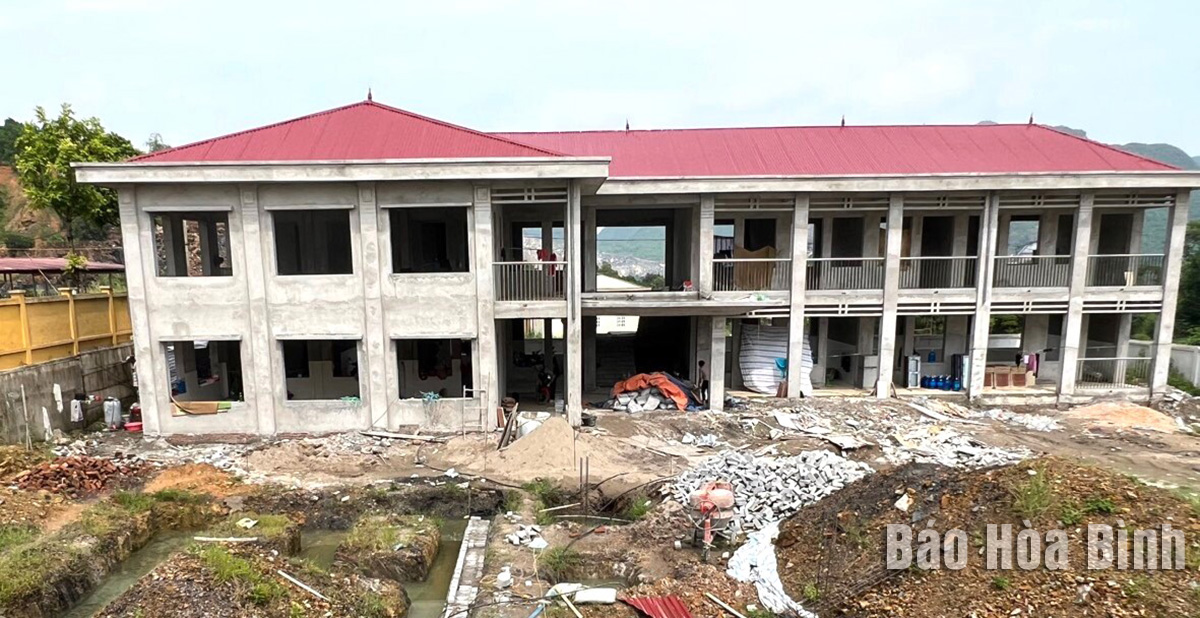
(HBO) - In recent years, the Division of Education and Training of Luong Son district has implemented solutions to mobilise resources to invest in education and training infrastructure in accordance with national standards, associated with the implementation of the new-style rural area building programme.

Trung Son
commune’s kindergarten built in accordance with national standards.
Every year, the division consults the district People's
Committee to issue a plan to focus resources on building national-standard
schools. Therefore, the district has reviewed planning and invested in building
schools with facilities and teaching equipment that meet national standards.
The district has extensively implemented the campaign to
build new-style, advanced new-style and model new-style rural areas, step up
dissemination and organise emulation movements to raise awareness of managers,
teachers, employees, students and people of this work, and encourage good
models, examples and initiatives. Schools in communes include in their annual
work programmes the task of building new-style rural areas, and pay attention
to investing in facilities and teaching equipment that meet national standards
according to the district's new-style rural area building plan.
Since 2011, Luong Son has carried out programmes and
projects to build, upgrade and renovate nearly 300 administrative buildings,
classrooms, function rooms and auxiliary works, and purchased educational
equipment and tools for schools with a total budget of about 500 billion VND
(20.7 million USD).
Bui Quoc Hoan, Vice Chairman of the district People's
Committee, said that in 2019, the district completed the goal of building
national-standard schools, thus contributing to help the district fulfil
new-style rural area building criteria. To date, 39 out of its 43 schools, or
90.7% of the total, have been recognised as meeting national standards. The
district is striving to have the last four recognised this year.
The emulation movement "Hoa Binh joining hands to build new-style rural areas” has been widely spreading, becoming a driving force that motivates the localities to renew rural landscapes and improve the material and spiritual lives of the residents. In this movement, the people play a central role-both as the main implementers and direct beneficiaries of its outcomes.
In response to the global digital revolution, Hoa Binh Newspaper is transforming itself into a modern and multi-platform media hub, blending cutting-edge technology with a restructured newsroom and a new generation of tech-savvy journalists.
Hoa Binh province’s Association of the Elderly recently held a conference to review the project on expanding the inter-generation self-help club model until 2025.
In a move to implement Resolution No. 57-NQ/TW, issued on December 22, 2024 by the Politburo, which targets breakthroughs in science-technology development, innovation, and digital transformation, the Hoa Binh provincial Department of Health has issued a plan to roll out the "Digital Literacy for All” campaign within the local health sector.
An Nghia Commune (Lạc Sơn District) is one of the communes that achieved the tha standard of the national new rural area in 2018. Entering a new development phase, the commune is now trying to meet the criteria for the advanced new rural development. With the strong political will and the public consensus, the commune is gradually overcoming the challenges to reach this goal, aiming for the sustainable development.



